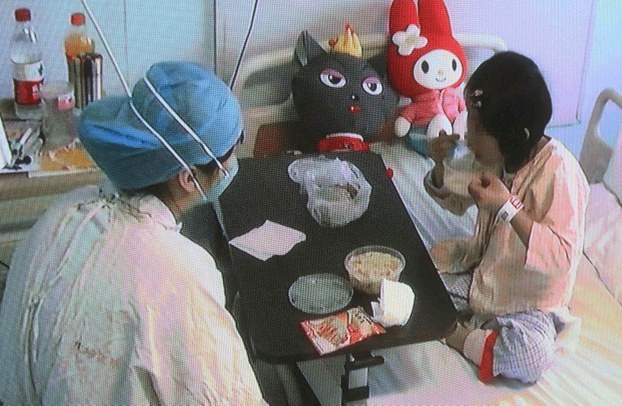




Chinese authorities confirmed Monday that that a second case of the H7N9 strain of avian influenza has hit the capital Beijing as the virus spread beyond eastern China, infecting 63 people and killing 14 so far in the country.
On Saturday, a seven-year-old girl became the first person in Beijing to be infected with the deadly new form of avian flu.
A day later, a four-year-old boy was tested positive for the H7N9 virus by the Beijing Center for Disease Control and Prevention, according to the Beijing Municipal Health Bureau.
The boy, who appears to be a carrier rather than a patient, had visited a market where one of the first recorded cases was selling chickens, the bureau's deputy director Zhong Dongpo told reporters on Monday.
"This is very important news from the point of view of prevention work," he said. "This case hasn't developed in the same way as some of the critically ill cases in eastern China."
The boy is not being included in the total number of confirmed cases nationwide, but he remains under medical observation at Beijing Ditan Hospital, according to the Xinhua report.
The H7N9 strain was not previously known to infect humans before cases turned up in China this winter
Two new infections were also confirmed in the central province of Henan as health officials stepped up preventive measures across China in the wake of the virus, which is being closely monitored for any signs of mutation that would make it easily transmissible between humans.
A Beijing commercial and industrial bureau official surnamed Zhang said that anyone owning homing pigeons is now forbidden to fly them.
"We are imposing controls on pigeons because they fly together with wild birds, which is the infection pathway," Zhang said. "We can't possibly impose controls on people, but it's much more achievable to place controls on which chickens go into the [meat-processing] factories."
Henan
In Henan, which also saw its first case confirmed over the weekend, medical staff were interviewing all the known contacts linked to the patient, officials said.
"We are keeping under close observation all the contacts of the [newly infected] cases," said a health official in the municipal government of Zhoukou, Henan province. "[The latest case] is a farmer who was connected to a slaughterhouse."
"We have been doing prevention work all along," the official said.
The emerging outbreak has led to mass culls of poultry and the closure of poultry markets in major Chinese cities.
A Guangdong trader surnamed Liu said he had been forced to slaughter his entire flock of eating pigeons, because he could no longer afford to feed them.
"There's nothing we can do," Liu said. "No one is buying, and these pigeons have to eat grain."
"We have to limit the damage by burying them alive," he said. "We have been doing this for two days and we have [slaughtered] 120,000 or so."
He said none of the birds had shown signs of infection so far.
Eleven new cases of bird flu were reported on Sunday alone, the official Xinhua news agency quoted health officials as saying.
The two most recent deaths, of a 67-year-old woman and a 77-year-old man, were reported in Shanghai, while health authorities in the eastern provinces of Jiangsu and Zhejiang reported six new infections.
The four Zhejiang cases were in critical condition after testing positive for the avian influenza virus, Xinhua said.
Fears
Local residents in areas worst hit by the outbreak have rushed to buy up face masks and herbal anti-viral products, as many voice fears that the government isn't telling them the whole story.
Bird flu is very common among poultry flocks in southern China, and is sometimes transmitted to people and pigs nearby.
However, person-to-person transmission, which could spark a pandemic, is rare, and this still appears to be the case with the H7N9 virus, although experts say it is likely still evolving.
The World Health Organization has said there has been no sign of a sustained spread of the virus from person to person in China so far, but that it is still possible that limited transmission has occurred between people.
Reported by Fung Yat-yiu for RFA's Cantonese service, and by Qiao Long for the Mandarin service. Translated and written in English by Luisetta Mudie.